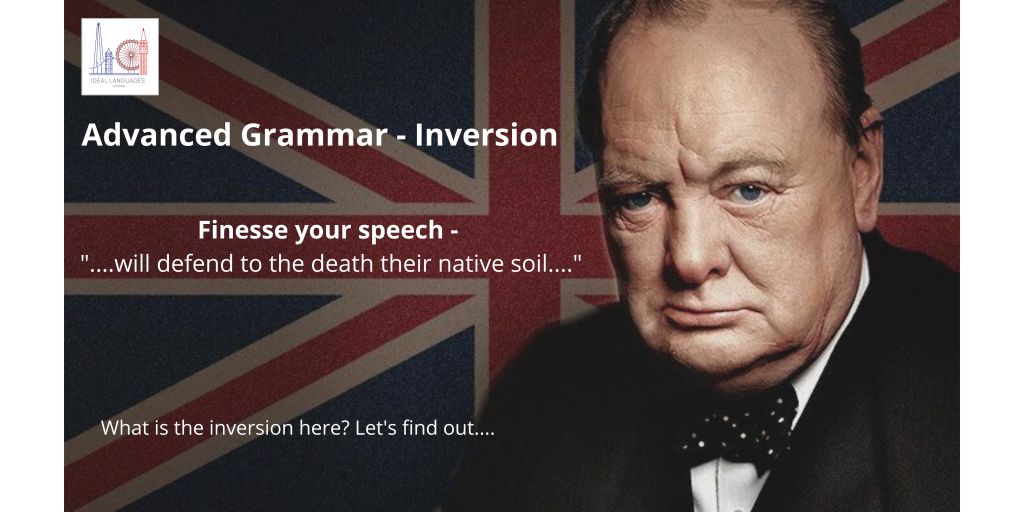Do you want to learn to speak better? Inversion is one way you can do this.
Following on from our previous post about inversion, we will now tell you about another form of inversion that you can use to finesse your language.
In part 1, we talked about negative inversion, where you invert the subject and auxiliary verb and use a ‘negative or limiting adverbial’ at the start, as in ‘rarely do I drink beer’ (the non-inverted version would be ‘I rarely drink beer’), used for emphasis, drama or formality.
Today, we are talking about another form of inversion, one popular with none other than Sir Winston Churchill. This is called Anastrophe. Churchill was an incredible speaker, and he used high-level structures such as these to finesse his language.
What is it?
Anastrophe is a figure of speech in which the normal word order of the subject, verb, object is changed. For example, subject–verb–object might be changed to object–subject–verb. There are many examples of this from Star Wars, such as ‘the greatest teacher, failure is’. Why do you think this is done? Before you read on, comment with your thoughts.
Why do this?
Anastrophe in speech causes an audience to listen a bit more carefully to the message of the speaker. Like negative inversion, it is also used for emphasis. It can be used in a speech or in literature.
Many famous speeches use anastrophe as a rhetorical device, such as the famous ‘We Shall Fight on the Beaches’ speech by Winston Churchill during the early stages of the Second World War when he declared that Britain and France would stand up and fight the Germans.
We Shall Fight on the Beaches
Winston Churchill’s ‘We Shall Fight on the Beaches’ speech spurred a nation to face a challenge like never before. He proves the power of rhetoric with his mastery of vocabulary:
‘The British Empire and the French Republic, linked together in their cause and in their need, will defend to the death their native soil, aiding each other like good comrades to the utmost of their strength. Even though large tracts of Europe and many old and famous States have fallen or may fall into the grip of the Gestapo and all the odious apparatus of Nazi rule, we shall not flag or fail.’
Churchill inverts the direct object (‘their native soil’) with the indirect object (‘to the death’). His anastrophe emphasises the passion of British soldiers going to fight in the deadly battles of World War II.
Read it back to yourself aloud. Does it sound more emphatic? Do you think people pay more attention to it because of this inversion? I certainly think so.
Have a try yourself. Give us your examples in the comments.
Why does Churchill use the word ‘shall’ here? Comment or see our next blog to find out why.

